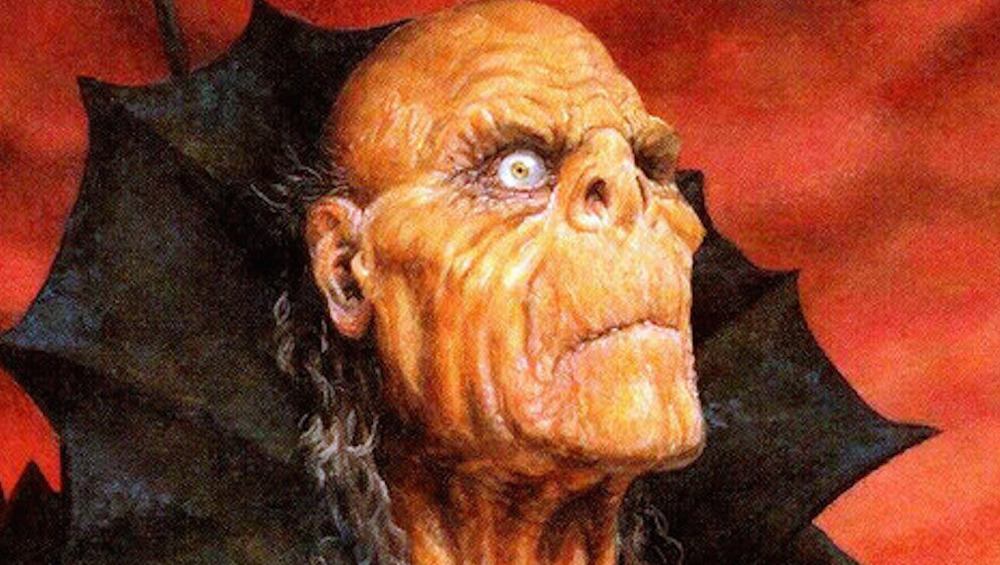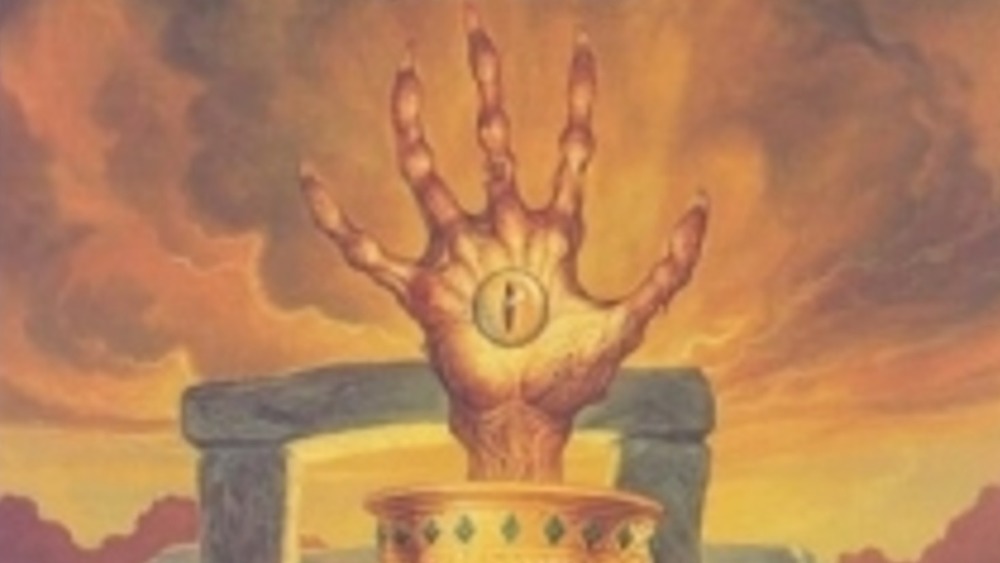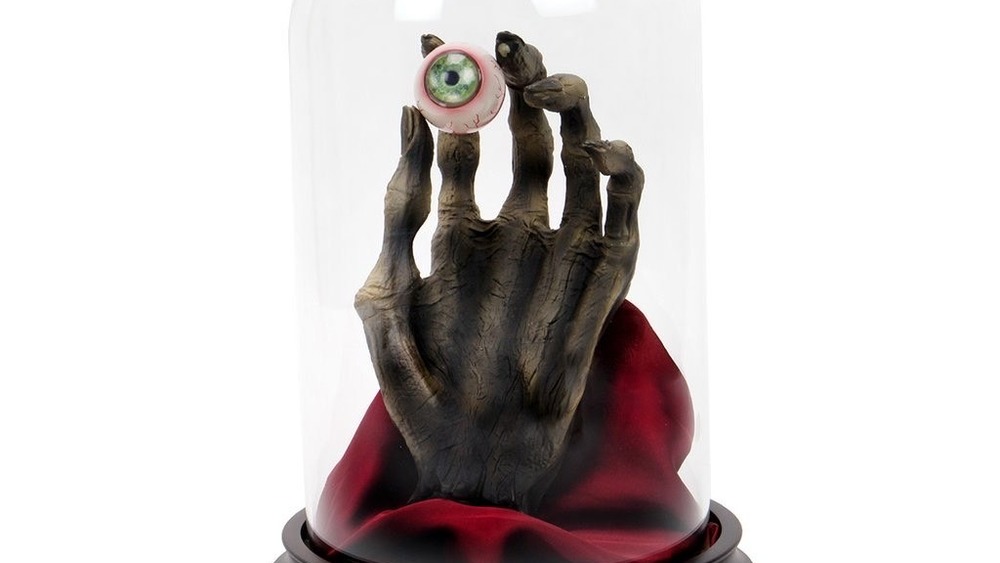What Only Hardcore Dungeons & Dragons Fans Know About Vecna
Only the most hardcore villains come with a laundry list of spooky titles and Dungeons & Dragons' evil lich Vecna is no exception. Whether he's called the Whispered One, the Undying King, or even the dubiously desirable title, "the Master of the Spider Throne," Vecna is one of the tabletop roleplaying game's most infamous foes. Still, most of his lore dates back to modules published in 2000 and earlier, so anyone who's picked up the game in the last 20 years — a.k.a. a lot of players — probably won't know his full history.
Now, any good villain cultivates a bit of mystery and drama around themselves, so it's fitting that the first mentions of Vecna in D&D were simply tales of old about a pair of weird, magical artifacts: The Eye and the Hand of Vecna. They're pretty gross at face value — an eye torn from its socket and a severed, wilted hand — but they offer some sick powers for anyone willing to use them. There are, of course, a few catches.
If a character chops off their own hand and replaces it with the Hand of Vecna, they'll get some extra strength and melee attack power, plus some spells. However, whenever they use it to cast, the hand will magically coerce them into doing a heinous act. Similarly, anyone lucky enough to come across the Eye of Vecna is compelled to tear out their own and replace it with Vecna's for extra special evil powers, like X-ray vision and some sweet spells. But again, using it comes with a price: With each spell cast, there's the slight risk of Vecna devouring their soul. Oh, and if they try to remove it, they die — it's in the small print.
So right off the bat, Vecna is not one to mess around with unless you're really devoted to being evil. Of course, he gets worse from there.
Vecna was betrayed and destroyed, leaving only his hand and eye
Before he was just a couple of creepy artifacts, Vecna was a living human — or half-elf, depending who you ask — but, as nefarious wizards are wont to do, he desired immortality. There are a few ways to go about becoming immortal in D&D, but Vecna decided on the definitively evil one: With help from the demon Orcus (whose own wicked title is the Demon Prince of Undeath), he became a lich, a power-hungry undead wizard.
Once Vecna was settled in his full time job of being evil, he crafted a fancy blade for his lieutenant, Kas, which got the comparatively lame name, "the Sword of Kas." The weapon was sentient, though, and convinced Kas to go after Vecna and seize his power. They fought, and Vecna was seemingly destroyed; only his left hand and eye remained.
However, people were still into Vecna even after his supposed death, so as the centuries passed, he gained his own cult of followers. Through the power of their adoration (and probably an unhealthy dose of fear and thirst for power) he turned into a demigod. Of course that wasn't enough for ambitious, spunky Vecna. He wanted to be a full-on god — but he needed his hand and eye to do so. This is where Vecna became a true villain for adventurers: In a D&D second edition module — "Vecna Lives!" — players could try and stop him from ascending. Assuming they succeeded, his story picked up again in the misty land of Ravenloft.
Vecna ascended to full godhood
Up until this point, all of Vecna's story happened in the D&D campaign setting Greyhawk, but in the game modules "Vecna Reborn" and "Die Vecna Die!" he moved through the multiverse to the realm of Ravenloft. It's there that he becomes trapped in his own pocket dimension called Cavitius and locked in a never ending battle with Kas, now a vampire and ruling his own pocket dimension across the way. Vecna, still desperate to gain power, buried two tablets to tempt people to him with promises of turning them into gods. However, when one did find him, he consumed them and became a god himself — losing the creepy skeleton look and going back to his original hot self.
He and the player characters then transported to the strange city of Sigil, where Vecna attempted to take control of the entire multiverse. However, with a few good rolls, some strategic planning, and both the Hand of Vecna and the real Sword of Kas (there are several fakes), players kicked him out of Sigil and kept him from taking complete power — yet he still lived on as the deity of evil secrets. That's where you'll find him now, in the 5th edition Player's Handbook and Dungeon Master's Guide, in the pantheon of gods.
The most recent addition to Vecna canon is that actor Joe Manganiello's dragonborn character Arkhan the Cruel now wields the Hand of Vecna, according to the adventure guide Baldur's Gate: Descent Into Avernus. He stole it in the campaign setting Exandria, on the D&D liveplay show Critical Role, and then ran across the multiverse to the Nine Hells in hopes of using it to bring back the dastardly dragon goddess Tiamat (via ComicBook.com).
So anyone playing in the Forgotten Realms setting will have to go through Arkhan to get that hand, but everyone else can simply buy WizKids' new Hand and Eye of Vecna collectible to make their home feel a little bit more like an evil wizard lair. Who doesn't want that?


